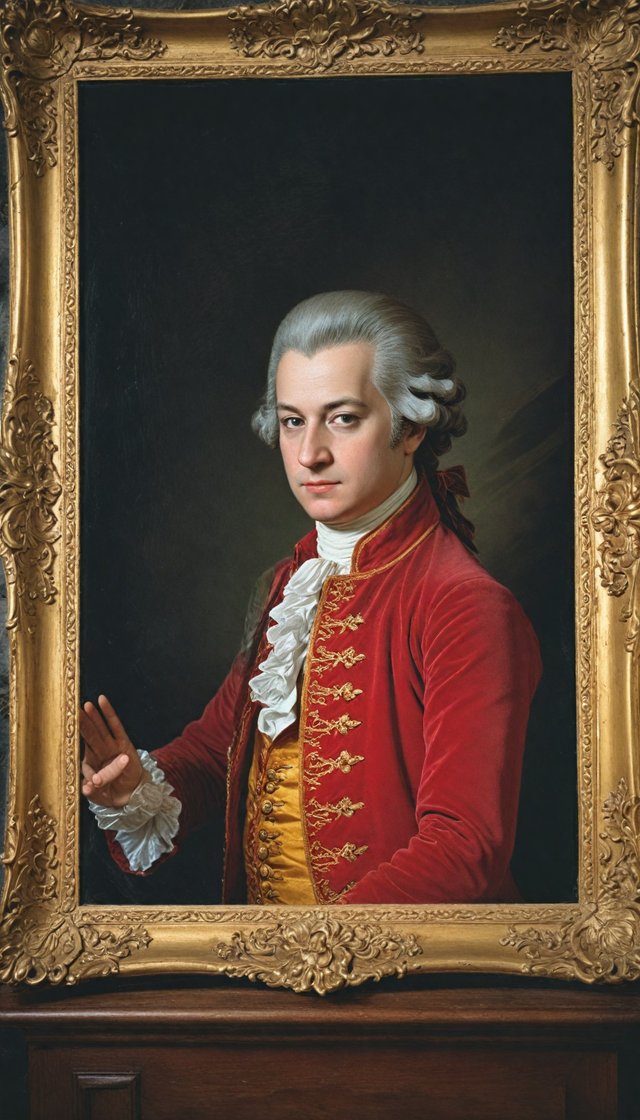Wolfgang Amadeus Mozart was born on January 27, 1756, in Salzburg, Austria, and is widely recognized as one of the greatest musical prodigies and one of the most significant composers in the history of Western classical music. Showing remarkable musical abilities at the tender age of three, Mozart began composing and performing before European royalty by the age of five.
Mozart was the seventh child of Leopold Mozart, a respected composer and music teacher, and Anna Maria Pertl. Only Wolfgang and his older sister Maria Anna, nicknamed "Nannerl," survived childhood. Leopold quickly recognized his children's extraordinary talents and dedicated himself entirely to their musical education, taking them on extensive concert tours across Europe. These journeys significantly contributed to Mozart's development, exposing him to a wide array of musical styles and influences.
Throughout his short life, Mozart composed over 600 works, including 41 symphonies, 22 operas, 27 piano concertos, 23 string quartets, and numerous chamber music and choral compositions. Some of his best-known and most frequently performed works include "Eine kleine Nachtmusik," "The Magic Flute," "Don Giovanni," "The Marriage of Figaro," and the unfinished "Requiem."
Mozart's music is distinguished by its melodic beauty, harmonic sophistication, and structural clarity. His compositions were both innovative and deeply rooted in the classical tradition. He was a master of counterpoint and musical form, and his works influenced numerous subsequent composers, including Ludwig van Beethoven, Franz Schubert, and Johannes Brahms.
Despite his extraordinary talent and artistic success, Mozart often struggled financially. This was partly due to his extravagant lifestyle and the irregular income from his compositions and performances. After breaking with the Archbishop of Salzburg in 1781, Mozart moved to Vienna, where he created some of his most significant works and worked as a freelance musician.
Mozart's personal life was as multifaceted as his music. In 1782, he married Constanze Weber, a singer with whom he had six children, although only two survived to adulthood. His letters and contemporary accounts describe him as lively, humorous, and sometimes a bit unpredictable, but also as very hardworking and passionate about his work.
On December 5, 1791, Mozart died in Vienna at the age of just 35. The exact cause of his death remains a mystery and is the subject of much speculation and legend. He was buried in a simple communal grave at the St. Marx Cemetery in Vienna, which was not uncommon at the time.
Mozart's legacy endures; his music is performed, studied, and loved worldwide. His ability to combine deep emotional expression with technical perfection makes him a timeless symbol of musical genius and creativity. His works continue to inspire musicians and composers and remain an essential part of the classical repertoire.
